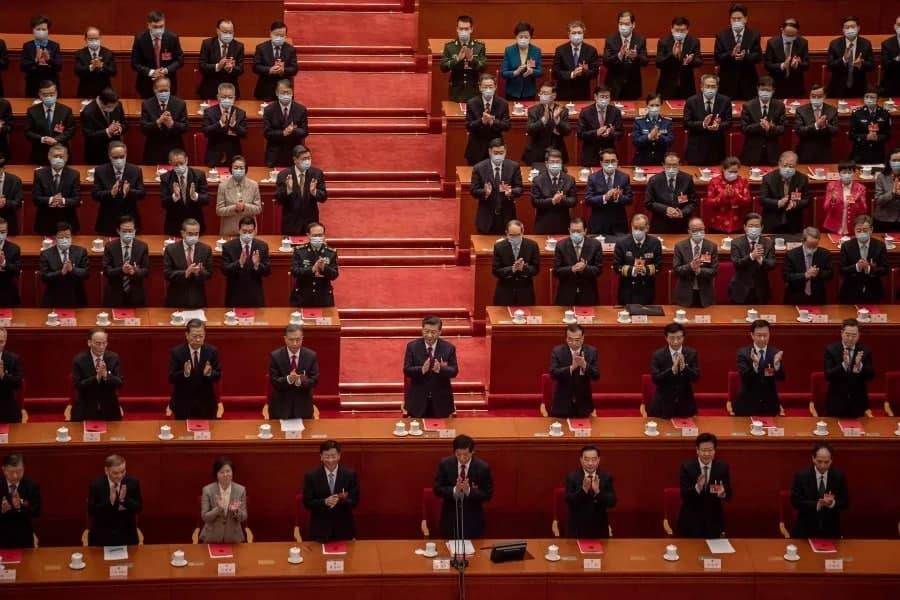BEIJING, March 11 (CNA) - China's parliament voted overwhelmingly on Thursday (Mar 11) for changes to Hong Kong's electoral system including plans to grant Beijing veto powers over who gets to be nominated and elected to run the Asian financial hub, as leaders move towards a "patriotic" government after huge pro-democracy rallies in the city.
Beijing has acted decisively to dismantle Hong Kong's democratic pillars after massive and sometimes violent protests tremored through the financial hub in 2019.
At last year's meeting of the National People's Congress, the Communist Party leadership imposed a sweeping national security law on the finance hub.
That has since been used to jail dozens of democracy campaigners and has defanged the protest movement in a city which had enjoyed greater political freedoms than on the mainland under the "one country, two systems" rule.
The decision aims to place the power of governing the city "firmly in the hands of forces that are patriotic and love Hong Kong", according to parliamentary spokesman Wang Chen.
Although the exact shape of the latest changes is unclear in China's opaque political system, the vote clears the path towards a "qualification vetting system" for the electoral process in Hong Kong.
A Beijing-controlled election committee in the city would also be tasked with "electing a large proportion of Legislative Council members," he added, referring to the city's LegCo assembly.
The measures will alter the size and composition of Hong Kong's legislature and an electoral committee selecting the chief executive in favour of pro-Beijing figures.
The committee will also be given powers to select many city legislators. A new mechanism will be set up to vet candidates and screen election winners' behaviour to make sure only those seen as patriots rule Hong Kong.
Beijing will increase the size of the electoral committee from 1,200 to 1,500, and the legislature from 70 to 90 seats.
Currently half of the 70 seats in the Legislative Council, known as LegCo, are directly elected, a proportion which will shrink with the extra seats picked by the electoral committee. The other half represents industries, unions, and professions and is largely stacked with pro-Beijing figures.
China had committed to giving Hong Kong a degree of autonomy when it reverted from British colonial rule in 1997, a status that has unravelled in recent months - drawing international criticism.
Until recently Hong Kong has maintained a veneer of choice, allowing a small and vocal opposition to flourish at certain local elections.
Generally when Hong Kongers are allowed to vote, they vote in droves for pro-democracy candidates.
In recent years, however, authorities have ramped up the disqualification of politicians either sitting in the city's semi-elected legislature or standing as candidates, based on their political views.
Last month Hong Kong announced its own plans to pass a law vetting all public officials for their political loyalty to Beijing.
Wang had said the "chaos in Hong Kong society shows that there are obvious loopholes and defects in the current electoral system", giving an opportunity for "anti-China forces in Hong Kong" to seize power.
